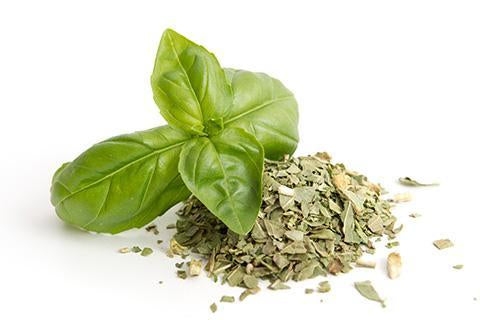CALMING HERBS
Nature has blessed us with a variety of herbs that possess calming properties, offering a natural way to promote relaxation, reduce stress, and support overall well-being. These calming herbs have been used for centuries in traditional medicine systems worldwide. In this article, we will explore 20 effective calming herbs and their usage, providing insights into their potential benefits and how they can be incorporated into your daily lifestyle.
1. Chamomile (Matricaria chamomilla):
Chamomile is renowned for its soothing properties. It can be consumed as a tea to promote relaxation, relieve anxiety, and support better sleep. It may also help ease digestive discomfort.
2. Lavender (Lavandula angustifolia):
Lavender is widely recognized for its calming aroma. Its essential oil is commonly used in aromatherapy to reduce stress, promote relaxation, and support restful sleep. It can also be brewed as a tea.
3. Lemon Balm (Melissa officinalis):
Lemon balm has a mild lemony scent and is known for its calming effects. It can be consumed as a tea or taken as a supplement to help reduce anxiety, promote relaxation, and support healthy sleep patterns.
4. Passionflower (Passiflora incarnata):
Passionflower is often used to reduce anxiety and promote relaxation. It can be consumed as a tea, tincture, or taken as a supplement. It may also aid in improving sleep quality.
5. Ashwagandha (Withania somnifera):
Ashwagandha is an adaptogenic herb that helps the body adapt to stress. It can promote relaxation, support mental clarity, and enhance overall well-being. It is typically consumed as a powder, in capsules, or as a tincture.
6. Valerian (Valeriana officinalis):
Valerian root is known for its sedative properties. It is commonly used to reduce anxiety, promote relaxation, and improve sleep quality. It is available in capsule form or as a tincture.
7. Holy Basil (Ocimum sanctum):
Holy basil, also known as Tulsi, is considered a sacred herb in Ayurveda. It is used to reduce stress, promote mental clarity, and support overall well-being. It can be consumed as a tea or taken as a supplement.
8. Skullcap (Scutellaria lateriflora):
Skullcap is a calming herb that helps alleviate anxiety, nervous tension, and restlessness. It can be consumed as a tea or taken as a tincture.
9. Lemon Verbena (Aloysia citrodora):
Lemon verbena has a refreshing citrus scent and is known for its calming properties. It can be brewed as a tea to reduce stress, ease digestion, and promote relaxation.
10. Kava Kava (Piper methysticum):
Kava kava is used in traditional Polynesian cultures for its sedative and anxiety-reducing effects. It is consumed as a tea or in supplement form. It should be used with caution and under expert guidance due to potential liver-related concerns.
Peppermint has a cooling and calming effect on the body. It can be consumed as a tea to relieve stress, promote relaxation, and support digestion.
12. Catnip (Nepeta cataria):
Catnip is known for its calming effects on both humans and cats. It can be consumed as a tea or taken as a supplement to reduce anxiety, promote relaxation, and support restful sleep.
13. Chamomile (Matricaria recutita):
Chamomile is a gentle herb that promotes relaxation and soothes the nervous system. It can be consumed as a tea or used topically in essential oil form for aromatherapy.
14. Rose (Rosa spp.):
Rose petals have a calming and uplifting aroma. They can be brewed as a tea or used in bath products to enhance relaxation and improve mood.
15. Hawthorn (Crataegus spp.):
Hawthorn is known for its calming and cardiovascular-supportive properties. It can be consumed as a tea or taken as a supplement to promote relaxation and support heart health.
16. St. John's Wort (Hypericum perforatum):
St. John's Wort is commonly used to alleviate symptoms of mild to moderate depression and anxiety. It is available in capsule or tincture form but should be used under professional guidance.
17. Ginseng (Panax ginseng):
Ginseng is an adaptogenic herb that helps the body cope with stress. It can enhance mental clarity, reduce fatigue, and promote overall well-being. It is typically consumed as a supplement.
18. Rhodiola (Rhodiola rosea):
Rhodiola is another adaptogenic herb that supports stress reduction and mental performance. It can be consumed as a supplement to promote relaxation,increase energy, and improve focus and mood.
19. Lavender (Lavandula spp.):
Apart from its calming aroma, lavender can be used topically in the form of essential oil for massage or added to bathwater for relaxation and stress relief.
20. Gotu Kola (Centella asiatica):
Gotu kola is known for its calming and cognitive-enhancing properties. It can be consumed as a tea or taken as a supplement to support relaxation, mental clarity, and overall brain function.
These 20 powerful calming herbs offer a natural and effective approach to promote relaxation, reduce stress, and support overall well-being. While they can provide various benefits, it's important to note that individual responses may vary. It is always recommended to consult with a healthcare professional before incorporating new herbs into your routine, especially if you have any pre-existing medical conditions or are taking medications. Aside these, embrace the power of nature and explore these calming herbs to find the ones that resonate with you, helping you achieve a greater sense of peace and tranquility in your life.
Do you find this article and others insightful and helpful, please share tham with someone or a group together let's build a healthy society with amazing lifestyle.
Love you all.



Comments
Post a Comment